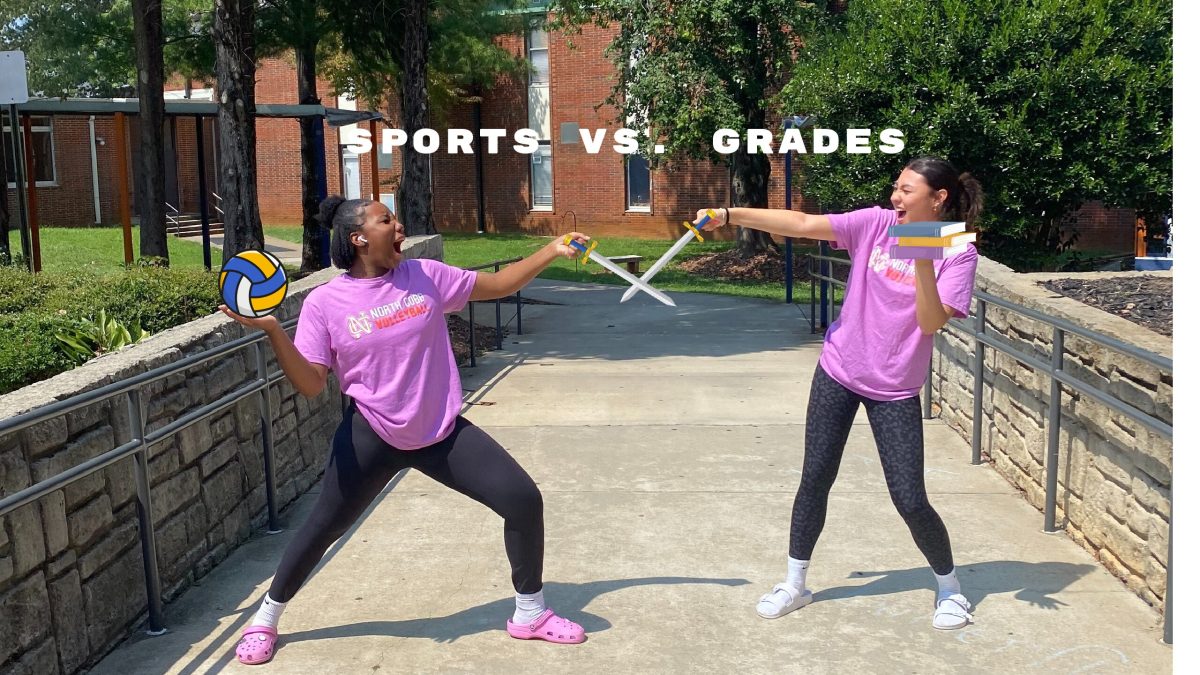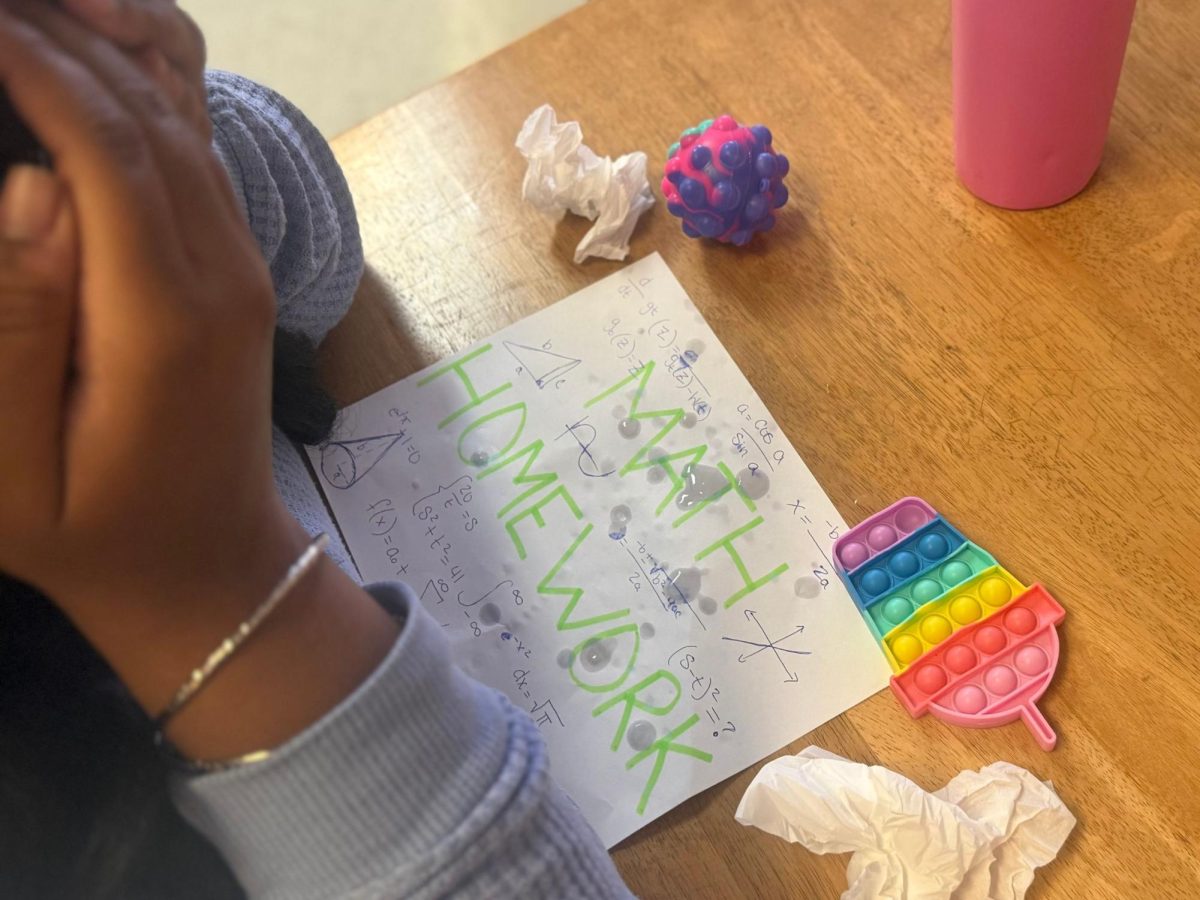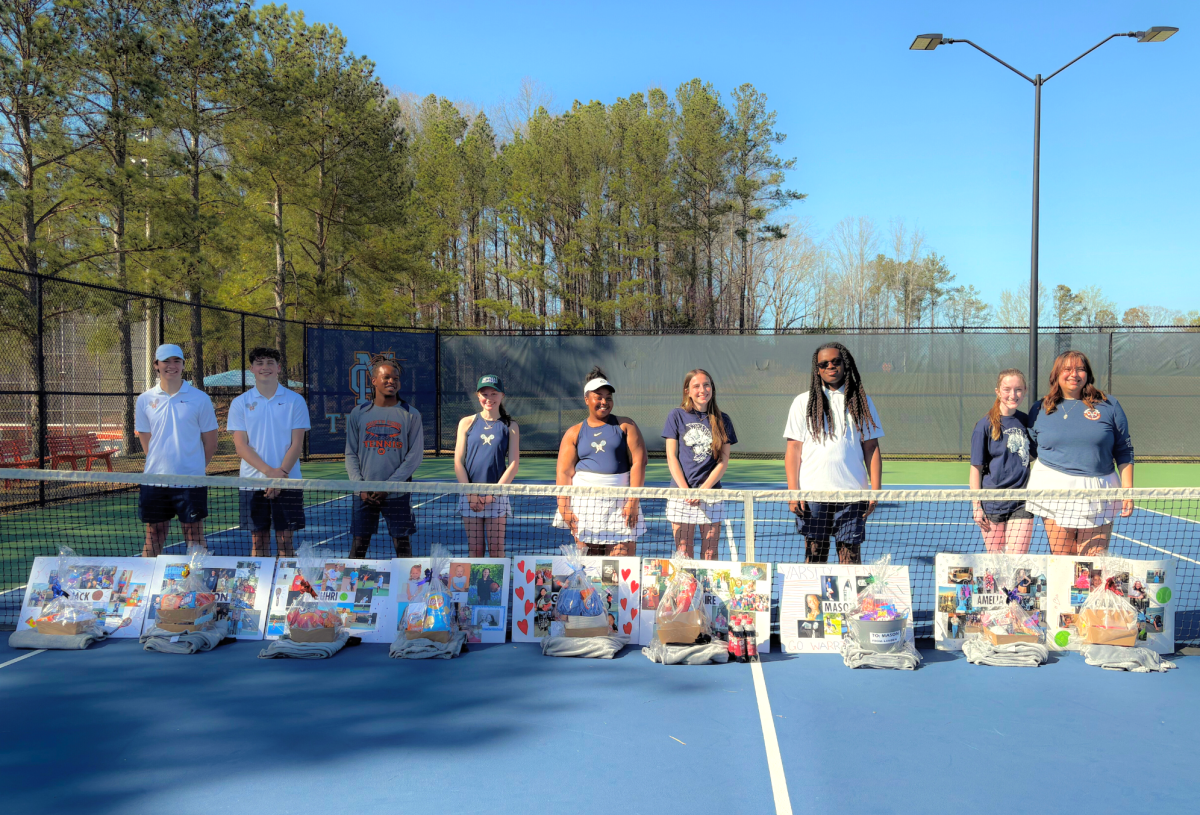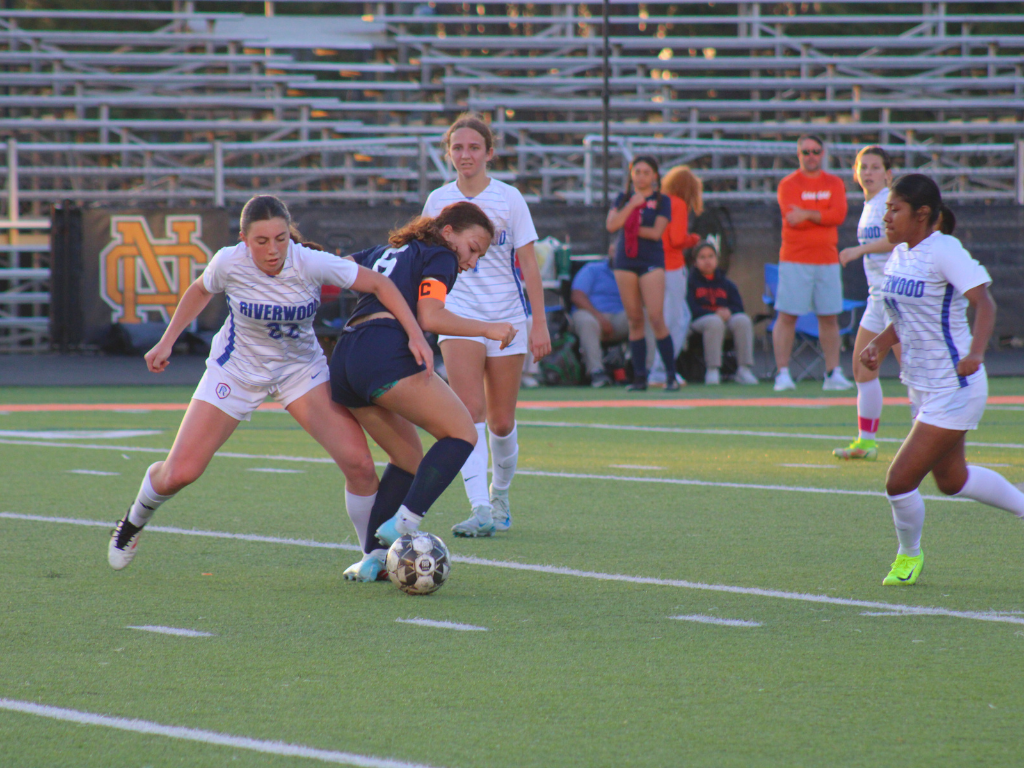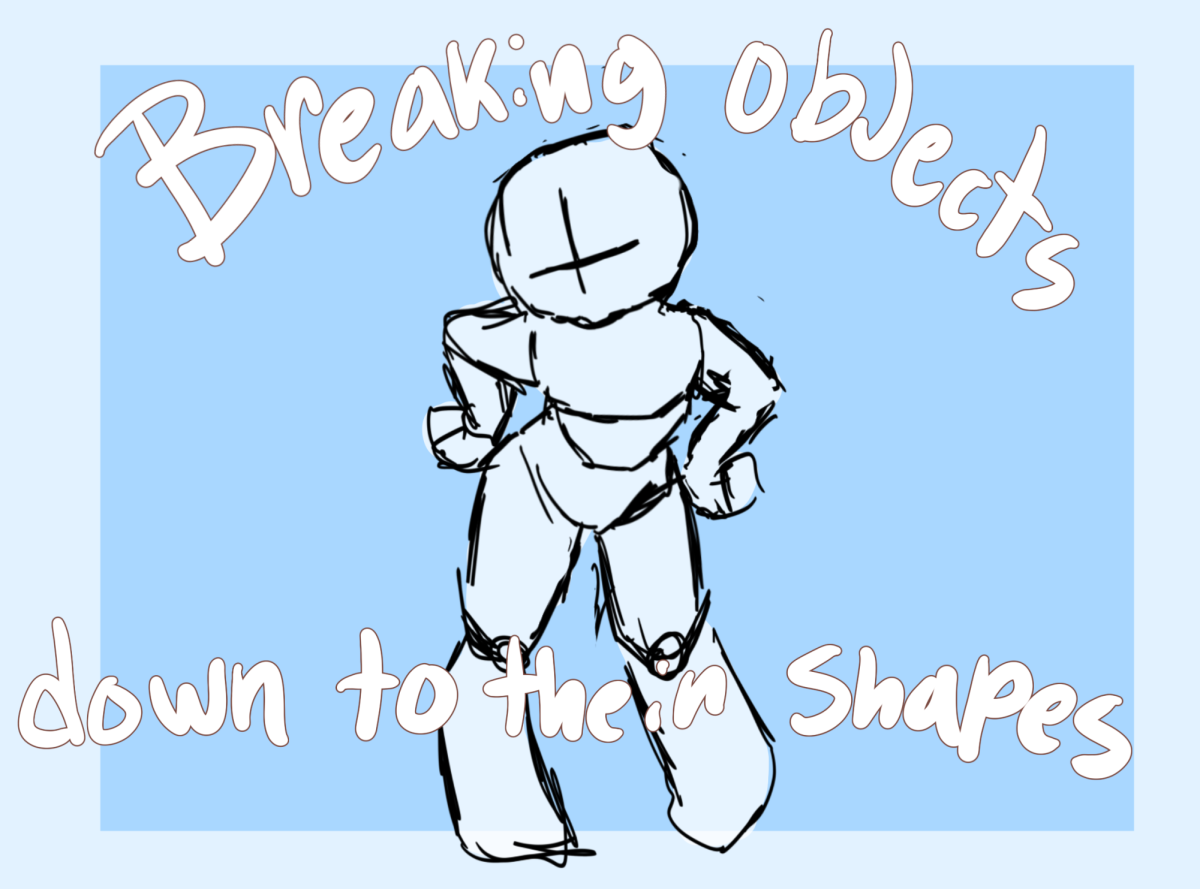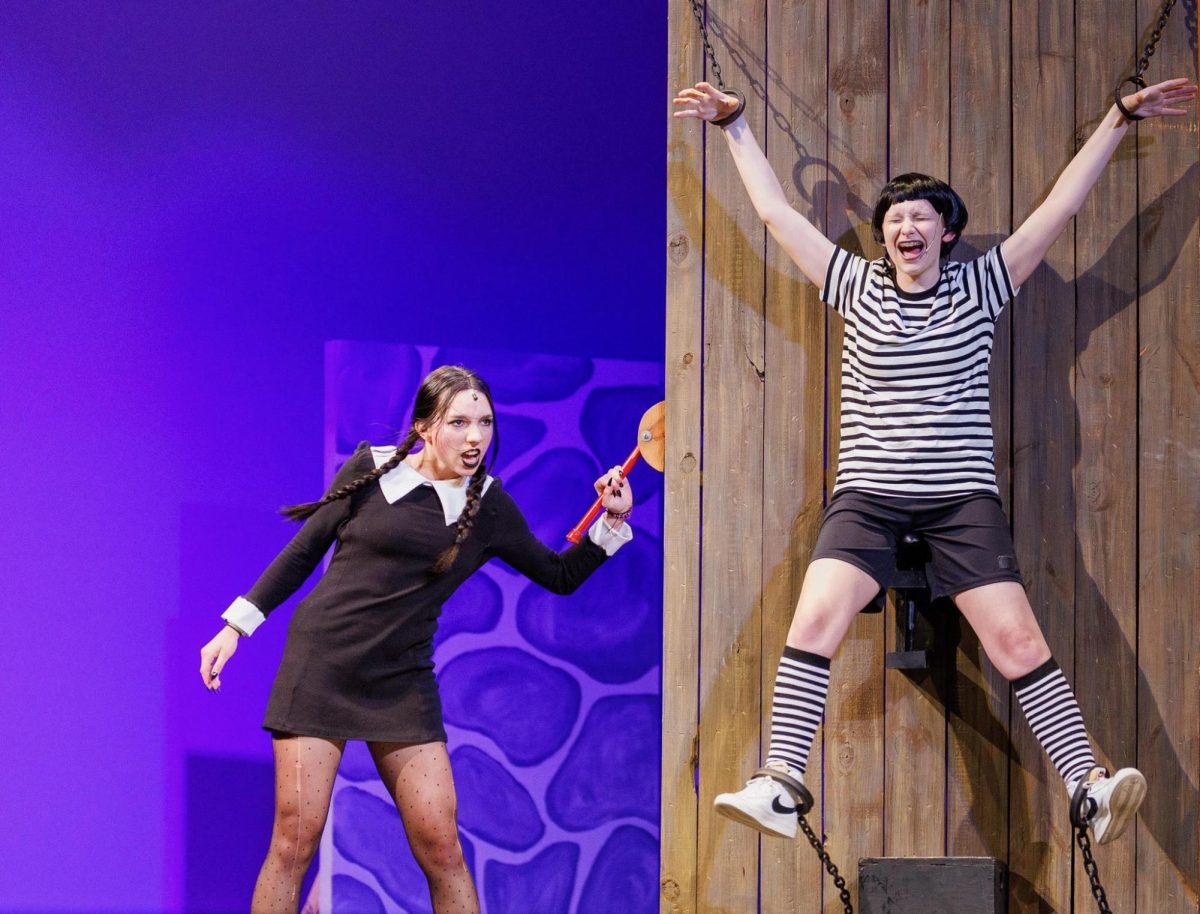Once student-athletes come home from practice, they face the decision of reviewing their game footage, starting their assignments or completing other tasks to prepare for the next day. These daily decisions become vital to whether they stay afloat in their academics, sports and social lives.
Student-athletes hold the pressures of competing with their teammates, as well as balancing their grades needed to play sports. Moreover, they need to maintain social lives because sports and school overwhelm the majority of their lives and they need an outlet to escape from this overwhelming pressure. Friends, family time and other hobbies become a support system for them in their time of stress and tribulation as a trying circumstance can become considerably dire if they lack a supportive circle of people they can rely on for support. Maintaining a support system of teachers, coaches, family and friends can help student-athletes cope with that stress.

(Shannon Kamau)
For student-athletes to succeed in their sports, they must attend practices. Athletes know that practice makes perfect, but these practices take time away from athletes to complete their school assignments and study for upcoming exams. Late practice times and transportation commutes contribute to the lost time, and students rarely receive extensions, meaning their work becomes incomplete and late. Incomplete and late work then become punished with lost playing time which then drops their performance in school and sports.
“I get home[from practice] at like eight maybe, and I still have to do chores and eat dinner and all that on top of school work. Sometimes you get no sleep, sometimes you do, it’s either you do or you don’t. If you have to stay up late to get your work done just get it done even if it’s not that good,” junior Saniyah Blake said.
Student-athletes pull all-nighters to replace the time they lost during the day. An all-nighter means staying up all night to perform an activity or task. Although all-nighters greatly affect sleep schedules, it can feel mandatory for athletes to do so to succeed and complete their work on time. Uncompleted work becomes grades that start to fall behind and playing time that coaches will reduce.
An irregular sleep schedule causes athletes to experience decreases in their job performance and productivity, and can lead to negative health effects, including fatigue and several other issues. Issues such as fatigue can cause athletes to encounter a decrease in endurance which stunts their sports performances. Fatigue may also set in during certain times of the day—including class time—which may become repetitious and a never-ending problem until it becomes properly addressed.
Not only do student-athletes compete with themselves to fit the athletic standards their sport requires of them, but they also compete for the same positions and scholarships as their teammates. Competing with their other teammates can also cause them to overthink their capabilities to succeed in not only their sports but in other aspects of their lives such as school. Whenever an athlete’s grades fall, their playing time also decreases, taking away opportunities for scouts to watch them play. Athletes hold pressure as college scouts watch and hold their futures in their hands. These college scouts attend students’ games and watch students succeed or watch another student take another’s spotlight as they compete for the same spot.
Although living as a student-athlete comes with pressures and numerous responsibilities, they choose to continue due to their passion and belief that their sports will take them to where they want to end up. Hopefully, they will look back at all these struggles that they endured as obstacles that simply helped them cross the finish line to their lives’ goals.




